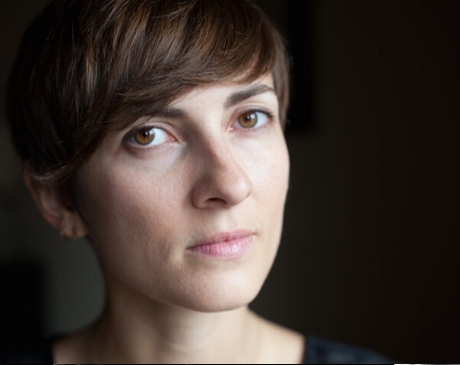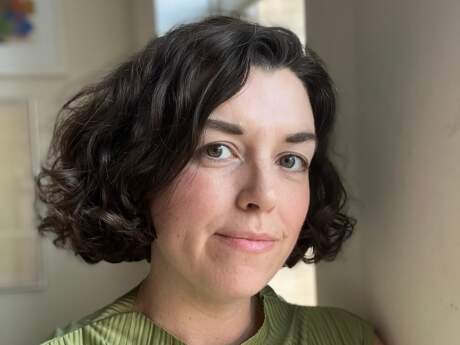In Their Own Words
Sarah Rose Nordgren's “1917”

1917
The holiest thing a mother does is know
your name long after her skin
disintegrates. I stand in a dark room imagining
my birth in 1917, so I can reverse
each injury her body takes. If history
were a computer programmed by a genius child
on the best day of his life, her guts would be
tethered to her spine more tightly.
When she hunched over the steaming
kitchen sink, it would be yellow petals pouring
from her eyes. Her breasts would ungrow
to fresh mosquito bites, and the tiny,
plastic Reset button, installed
in her chest so carefully, would glow.
On "1917"
If I had a rock band, I might call it Haunted by Mothers or, maybe more aptly, Haunted by Babies. My poems can't seem to be rid of either one, even though I'm neither.
The first lines of "1917" came when someone very close to me lost his mother to cancer. It seems to me, from conversations I've had with other people and from my own experience, that mothers often occupy the position of the spiritual center of a family (whether or not that family is "intact"). The mother knows where all the children are at any given hour, and is the keeper of ritual. My mother has a little map of the world inside her heart, with color-coded pushpins indicating where her three daughters are in the world that day. There are dotted lines on the map on days we travel. In this way, my mother's existence comforts us like the concept of God does for many people. Her awareness, her "knowing" of us, assures us that we exist.
When my close friend's mother died, his family members fell away from each other like marionettes whose strings had been dropped. For a time all order was gone for them, and during that time of sorrow and grief I thought a lot about my own mother: her position in my family, her own grief in losing her mother too young, and the long chain of mothers and daughters in her family who married and had children quite early – too early, perhaps – giving their bodies and very selves to their great task of birthing and raising children.
The poem is an attempt to rewrite history. It's a vision in which I'm born in the year my great grandmother was born in order to prevent the difficulty that each subsequent generation of mothers lived, down to my own mother – a kind of Back-to-the-Future-style time travel. I imagine history as a computer program designed by a happy child – one that writes out pain and grief – and my mother as a kind of android unable to age or weep, who can be reset and brought back to zero through the simple pushing of a button.
Of course we all know from movies that that kind of mission usually backfires, but wrong-headedly attempting to save our parents is a time-honored tradition – one I have personally embraced for years. And with the speed at which technology is advancing every day, we may soon have the chance to ignore the warnings of science fiction writers and try it out.


